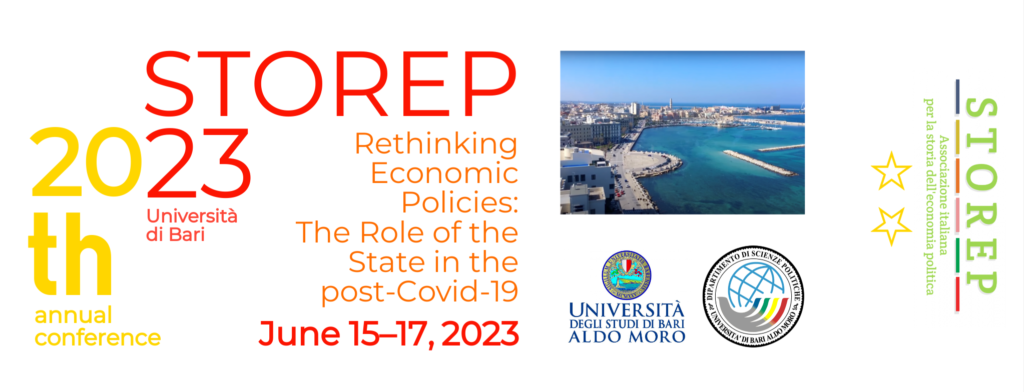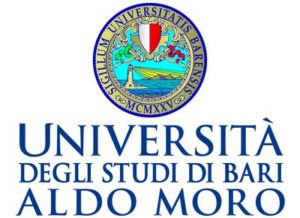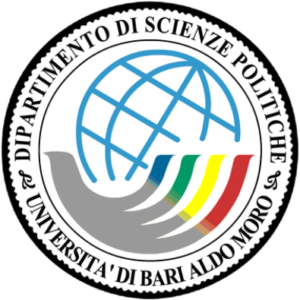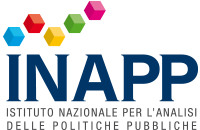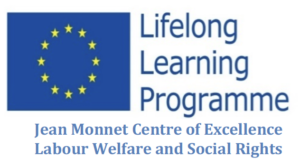20th STOREP Annual Conference – 15-17 June 2023
Rethinking Economic Policies:
The Role of the State in the post-Covid-19
20th STOREP Annual Conference, June 15-17, 2023
Università degli Studi di Bari Aldo Moro, Dipartimento di Scienze Politiche, Palazzo Del Prete, Piazza Cesare Battisti, 1 – 70121 Bari
[full information about the Conference in the above menu, “☆☆ STOREP 2023 ☆☆” under “Activities” – links are also reported in the text below. To download the Call for papers in pdf format, click here]
Background and Rationale
The 20th STOREP Conference, “Rethinking economic policies: The role of the State in the post-Covid-19”, will be held at the University of Bari, Department of Political Sciences, June 15-17, 2023. The Conference will be preceded by the Young Scholars Initiative (YSI) pre-conference events (June 14-15, 2023).
Both the Covid-19 pandemic started in early 2020 and the onset of the Russia-Ukraine war in 2022 have represented unprecedented shocks for the world economy, exacerbating pre-existing inequalities and socio-economic crises inherited from the Global Financial Crisis and its aftermath. Tackling the Covid-19 crisis and the bottlenecks caused by the war have thus presented a grand challenge to many governments and international institutions.
Since the outbreak of the pandemic, governments and central banks have taken swift and massive action to mitigate its economic and financial negative consequences. Welfare and labour market interventions in most countries have avoided dramatic further increases in unemployment, prompting a renewed debate over the need for more inclusive labour markets, increasing women and young participation, limiting the use of flexible work arrangements and setting minimum wage policies. The European Commission has suspended the Stability and Growth Pact (up to 2023), turning to strategies aimed at restoring economic growth, particularly by launching the Next Generation EU that finances the Recovery and Resilience Plans of the Member States. The International Monetary Fund has recommended focusing on public investments, both in infrastructures and research and innovation, to facilitate economic recovery by stimulating long-term and more inclusive economic growth.
The explosion of the Russia-Ukraine war in 2022 has further impacted European economies by increasing uncertainty, and depressing consumption and investment. The rising energy costs have led companies to reduce production and postpone investment, while inflation has strongly reduced the purchasing power of households, particularly those at the bottom of the income distribution. Against this scenario, European countries are likely to be unevenly affected by the war according to their dependency on fossil fuels and their specialisations along global value chains.
Such a new reality and the pressing need to tackle economic stagnation, inflation, increasing inequalities, labour market fragmentation and the rapid growth of non-standard forms of employment call for a radical change in the way public policies are to be formulated and interpreted. So far, it is not clear whether, and to what extent, the outbreak of the Covid-19 pandemic and the economic consequences of the Russia-Ukraine war are forcing a radical rethink in economic policies instead of merely paving the way for a ‘business as usual’ scenario, where the role of the State remains confined to make markets work till the next crisis. This requires a whole reconstruction of economic theories explaining public intervention, considering the essential role of the State and other policy-making institutions both in steering and orienting economic growth and addressing social, economic, and territorial disparities. From this point of view, the history of economic thought can provide relevant contributions helping to reflect on the role of the state in economic policy at times of crisis, through the tools of historical comparison, as well as on the role of the state in a historical perspective.
⇒ INFO on the General Program HERE
Submissions are welcome
STOREP 2023 Annual Conference aims to catalyse a national and international debate on how the role of the State and policy-making institutions needs to be rethought to tackle current societal challenges by promoting a pluralist discussion, through historical multidisciplinary perspectives.
⇒ The Submission WEBSITE is HERE
The Conference welcomes historical, theoretical and empirical sessions and research papers addressing how public policies and interventions can successfully ensure sustainable and inclusive economic growth, hence promoting innovation and reducing inequalities. Particularly, it is eager to include studies on the impact of the Covid-19 and the related policies, with a special focus on youths, women, and ethnic minorities. To this aim, the conference goal is to bring together scholars and leading experts belonging to different fields of the social sciences domain – such as economics and history of economic thought, economic history, sociology, law, demography, and geography – and from all over the world. Scholars from the Global South are especially encouraged to submit proposals and take part in the Conference.
Possible focuses of interest include, but are not limited to:
- Fiscal and Monetary policies
- Post-Keynesian and Neo-Schumpeterian economics
- Stock-flow and agent-based modelling
- Input-output analysis
- Ecological economics
- Labour market, youth, women, and ethnic minorities
- Feminist economics, gender inequalities, and unpaid work
- Labour mobility, migration, and territorial disparities
- Inequalities, minimum wages, and labour market regulation
- Technological change, labour markets, and income distribution
- Trade unions, industrial relations, and collective bargaining
- Economic policy, welfare, and health
- Industrial policies, public procurement, and innovation
- Digital, monopoly and rentier capitalism
- Regional economics and development
Proposals of papers in all fields adopting historical, theoretical, and empirical perspectives (both quantitative and qualitative analyses) and/or comparing different approaches to economic issues are more than welcome.
Special Sessions

STOREP warmly welcomes special sessions jointly organized with other scientific associations, NGOs, and policy-making institutions by inviting them to submit proposals. Special sessions will be jointly organized with the Italian Post-Keynesian Network, Post-Keynesian Economics Society, MinervaLab-Sapienza University of Rome, Economia Civile, INAPP – Istituto Nazionale per l’Analisi delle Politiche Pubbliche, AISSEC – Associazione Italiana per lo Studio dei Sistemi Economici Comparati.

As in the past, the 20th STOREP Conference will organize a joint initiative with the Institute for New Economic Thinking on “Public investment, Industrial Policies and the European Strategy” with the participation of distinguished colleagues Francesco Saraceno (OFCE-Sciences Po), Annamaria Simonazzi (Sapienza University of Rome), Gianfranco Viesti (University of Bari Aldo Moro).
STOREP will also host special sessions with the “Young Scholars Initiative”, as well as with students and researchers of the international network Rethinking Economics.
⇒ INFO on Young Scholars special sessions

We are pleased to announce that distinguished colleagues Chiara Saraceno (Collegio Carlo Alberto, Torino) and Pasquale Tridico (President of INPS, National Social Security Institute, and Roma Tre University) will join the conference as keynote speakers.
⇒ INFO on Invited Speakers HERE
Maria Pia Paganelli (Trinity University, San Antonio, Texas) will give the seventh “Raffaelli Lecture”.
⇒ INFO on the Raffaelli Lecture HERE
Proposals Submission, Registration, and Special Issues
Abstract and session proposals must be uploaded on the submission website of the conference – i.e. via the web-based software “Conference maker”. Please create an account by providing basic contact info and choosing a user ID/password to submit. If you signed up for a previous conference using Conference Maker, you can login with your existing user ID and password. Please follow the instructions here. Note that submitters have to add co-authors if any, once the proposal is submitted (by clicking on “Add/modify authors”).
- Abstract proposals (with keywords, JEL codes, and affiliation) must not exceed 400 words
- Session proposals should include the abstract of the three/four scheduled papers
Registration: All participants must become STOREP members or renew their membership (instructions here).
⇒ INFO on the Registration HERE
 The Review of Political Economy (ROPE) will consider selected papers presented at the STOREP Conference for publication. Participants have to submit their papers to ROPE within six months after the Conference. Manuscripts submitted through this procedure will go through peer review as usual. STOREP is also pleased to announce that a series of academic journals have expressed interest in considering Conference papers for publication.
The Review of Political Economy (ROPE) will consider selected papers presented at the STOREP Conference for publication. Participants have to submit their papers to ROPE within six months after the Conference. Manuscripts submitted through this procedure will go through peer review as usual. STOREP is also pleased to announce that a series of academic journals have expressed interest in considering Conference papers for publication.
⇒ INFO on Conference Papers HERE
 “Guest Discipline”: Sociology
“Guest Discipline”: Sociology
Economics’ increasing variety and fragmentation are also the product of “reverse imperialisms” by former victims of the dismal science’s expansionism. The mainstream of economics is in fact currently populated by a series of research programs that significantly deviate from the neoclassical core and have their origins in other social science disciplines.
Starting from 2023, STOREP invites scholars from a neighboring discipline to discuss this latter’s relationships with economics in a historical perspective, including the impact it currently has on economics itself, as well as the contribution it can make to creating a new transdisciplinary behavioral science in the future.
STOREP 2023 welcomes abstract and session proposals from Sociology and Economic sociology. To encourage participation, facilitations are provided in the form of extended deadline and discounted fees.
⇒ INFO on the Guest Discipline HERE
Important dates
- March 13, 2023: Abstracts and Sessions submission
- April 17, 2023: Notification of accepted and rejected abstracts and sessions
- May 19, 2023: Deadline for submitting full papers and for becoming Members
- By May 19, 2023: Early registration fee
- June 14, 2023: YSI pre-conference
- June 15-17, 2023: 20th STOREP Annual Conference
Important dates for young scholars: Scholarships and Awards (additional details below)
- March 27, 2023: Submission of Curriculum Vitae and an extended abstract
- April 21, 2023: Submission of the final version of the papers for Scholarships for young scholars
- By May 5, 2023: Results of the evaluation process
- December 31, 2023: Submission for Young STOREP Awards for the best articles presented at the 20th Annual Conference
Registration fees
STOREP Members
- (early registration) by May 19: 110€
- (late registration) after May 19: 175€
Others
- (early registration) by May 19: 160€ (annual membership included)
- (late registration) after May 19: 225€ (annual membership included)
Young scholars (non-tenured, under 40)
- STOREP members: 40€
- others: 60€ (annual membership included)
Young Scholars STOREP Awards
(1) STOREP provides two Awards of 1000€ each (so as to make it possible to reward both history-of-economic-thought articles and more policy-oriented papers) for the best articles presented at the Annual Conference by young scholars under 40 years of age. All applications, with CV and the final version of the papers, should be sent to segretario@storep.org no later than December, 31, 2023. Only papers co-authored by no more than 2 researchers, who both meet the requirements for belonging to the “Young” scholars, are eligible for the Award. Winning recipients of the award in one of the three preceding rounds cannot apply. Papers must neither have been published before nor be under review for publication in a scholarly journal at the time of the conference.
(2) Scholarships for young scholars (under 40 years of age, non-tenured). In order to be eligible, the applicant is required to submit a Curriculum Vitae and an extended abstract (2,000 words ca., both to be uploaded on the Submission website) on any topic relevant to the history of political economy, by March 27, 2023. The final version of the papers must be uploaded within April 21, 2023. Applicants will be informed about the result of the evaluation process no later than May 5, 2023. Winners will be awarded free STOREP Conference registration, including the association’s annual membership fee, as well as, if possible, a lump sum contribution to travel and staying expenses.
Committees and Partners
Organizing Committee
Angela Ambrosino (STOREP Secretary, Università di Torino) Vincenzo Bavaro, Maria Cristina Barbieri Góes, Michele Capriati, Valeria Cirillo, Matteo Deleidi, Marco Di Sapia, Marialuisa Divella, Santiago Josè Gahn, Ettore Gallo, Lidia Greco, Francesco Ninivaggi, Giacomo Signorile, Gianfranco Viesti (Università degli Studi di Bari, Department of Political Sciences), Eustachio Ferrulli (Università degli Studi di Bari, Department of Economics and Finance), Luigi Salvati (Università degli Studi Roma Tre, Department of Economics)
Scientific Committee
Angela Ambrosino (STOREP Secretary, Università di Torino), Maria Cristina Barbieri Góes, Vincenzo Bavaro, Michele Capriati, Valeria Cirillo, Matteo Deleidi, Marialuisa Divella, Santiago Josè Gahn, Ettore Gallo, Lidia Greco, Giuseppe Moro, Gianfranco Viesti (Università degli Studi di Bari, Department of Political Sciences), Enrico Bellino (STOREP President, Università Cattolica del Sacro Cuore), Mario Cedrini (STOREP Executive Committee, Università di Torino)
Institutional Partners

